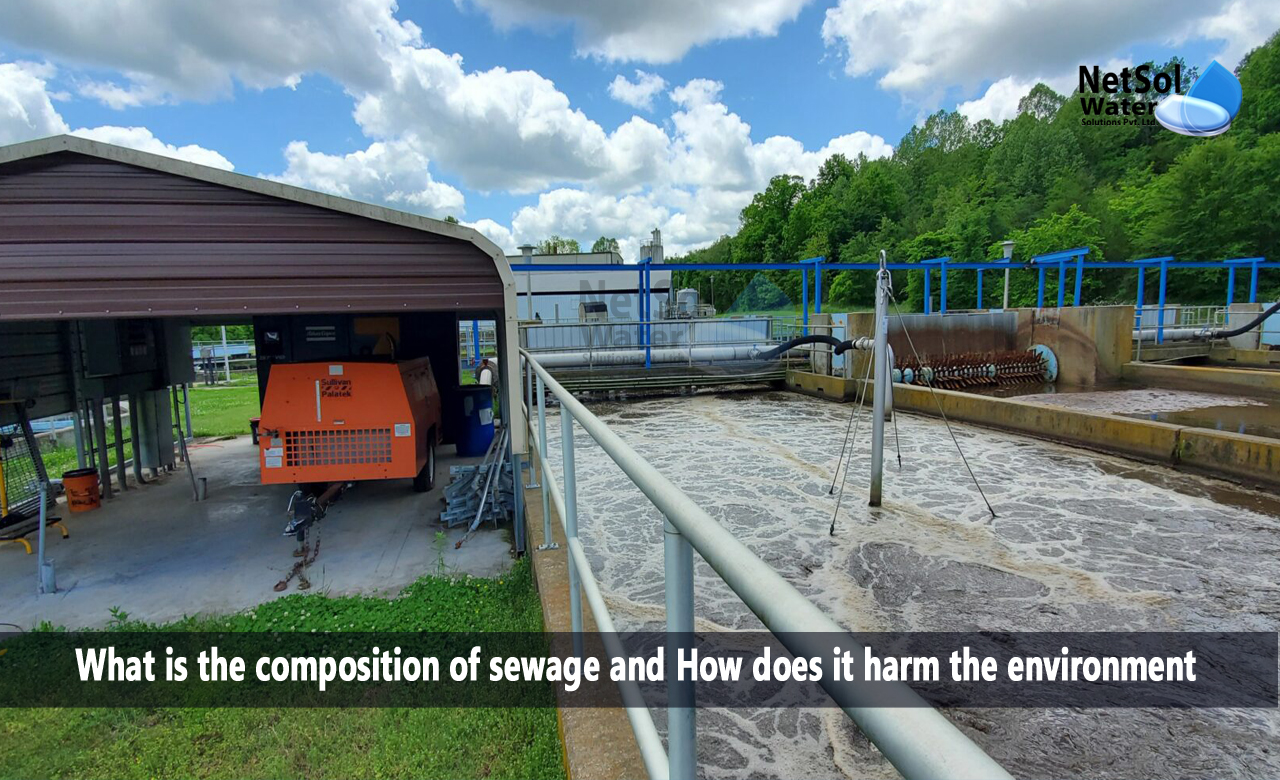What is the composition of sewage and How does it harm the environment?
Despite our best efforts to avoid it, sewage is a significant issue in every region of the world. It is simply waste carried by water. We all contribute to it, and as a group, we all have to deal with it, whether it's the waste that comes out of your toilet, or the enormous amounts of wastewater that flows out of industrial operations.
But what does it mean to "deal with sewage"? And how does sewage affect the environment? What is its composition? Let’s understand all these concepts in this blog!
What is sewage?
Sewage is wastewater whose quality has been negatively impacted by human activity. It is made up of liquid waste discharged from residential and commercial buildings, industries, or agricultural operations, and it may contain a variety of toxins in varying amounts.
Sewage may contain
1. water;
2. nutrients (nitrogen and phosphorus);
3. solids (including organic matter);
4. pathogens (including bacteria, viruses and protozoa);
5. helminths (intestinal worms and worm-like parasites) ;
6. oils and greases;
7. heavy metals (including mercury, cadmium, lead, chromium, copper), and
8. many toxic chemicals including PCBs, PAHs, dioxins, furans, pesticides, phenols and chlorinated organics.
How does sewage harm the environment?
Regrettably, sewage has mostly harmful consequences on the environment. Before it can be properly disposed of—typically into the ocean—it must be properly treated!
Moreover, sewage discharges contaminate streams with too many nutrients, which affect coastal ecosystems by causing hazardous algal blooms that endanger human health, result in fish kills, and suffocate coral reefs.
There are, however, two issues!
1: Sewage that hasn't been fully cleaned before being dumped can contaminate water and harm wildlife.
2: Alternately, sewage can enter rivers and other water sources through leaks or flooding fully untreated, contaminating them.
Can we use sewage as a resource?
Human waste not only contains contaminants but also a wealth of data that may be used, to track a variety of things. While the majority of research has concentrated on tracking the use of illicit drugs, it is increasingly expanding to other possible subjects of study. For example, determining the presence of pesticide metabolites might be advantageous, for the food and agricultural industries.
Conclusion
Sewage is a serious issue that must be addressed. It can be trash from our toilets or the massive amounts of wastewater that come from factories, and other industrial facilities. Also, we all contribute to it and we can work together to fix the sewage problem.
Thus, sewage treatment, sometimes referred to as wastewater treatment, includes removing contaminants from sewage or wastewater before they enter aquifers, or other natural water bodies including rivers, lakes, estuaries, and seas.
How can we assist?
Netsol Water offers wastewater treatment and sewage treatment for industries and commercial areas. Best methods and procedures have been used frequently in the sewage treatment, or wastewater treatment which we provide, which transforms wastewater into water that may be used for a variety of reasons, including agricultural industries and other uses.
We manufacture top-of-the-line WWTPs, STPs, WTPs, and ETPs that are highly successful at removing pollutants, from commercial and industrial wastewater. For further information, contact us at +91 9650608473 or enquiry@netsolwater.com



